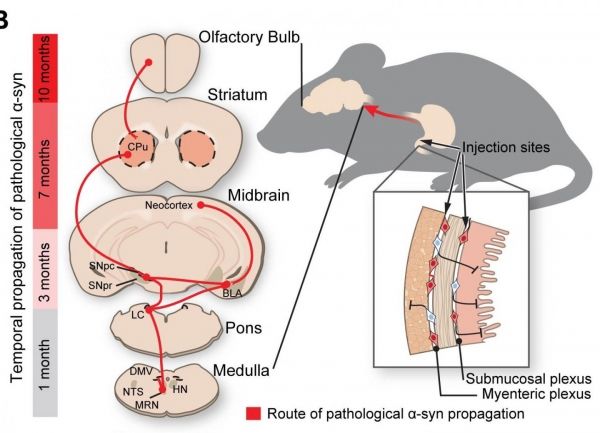In experiments in mice, Johns Hopkins Medicine researchers say they have found additional evidence that Parkinson’s disease originates among cells in the gut and travels up the body’s neurons to the brain. The study, described in the June issue of the journal Neuron, offers a new, more accurate model in which to test treatments that could prevent or halt Parkinson’s disease progression.
“These findings provide further proof of the gut’s role in Parkinson’s disease, and give us a model to study the disease’s progression from the start,” says Ted Dawson, M.D., Ph.D., director of the Johns Hopkins Institute for Cell Engineering and professor of neurology at the Johns Hopkins University School of Medicine.
Parkinson’s disease is characterized by the buildup of a misfolded protein, called alpha-synuclein, in the cells of the brain. As more of these proteins begin to clump together, they cause nerve tissues to die off, leaving behind large swaths of dead brain matter known as Lewy bodies. As brain cells die, they impair a person’s ability to move, think or regulate emotions.
Read more at John Hopkins Medicine
Route of Parkinson's disease-causing protein propogation in mice. (Photo credit: Ted Dawson)


